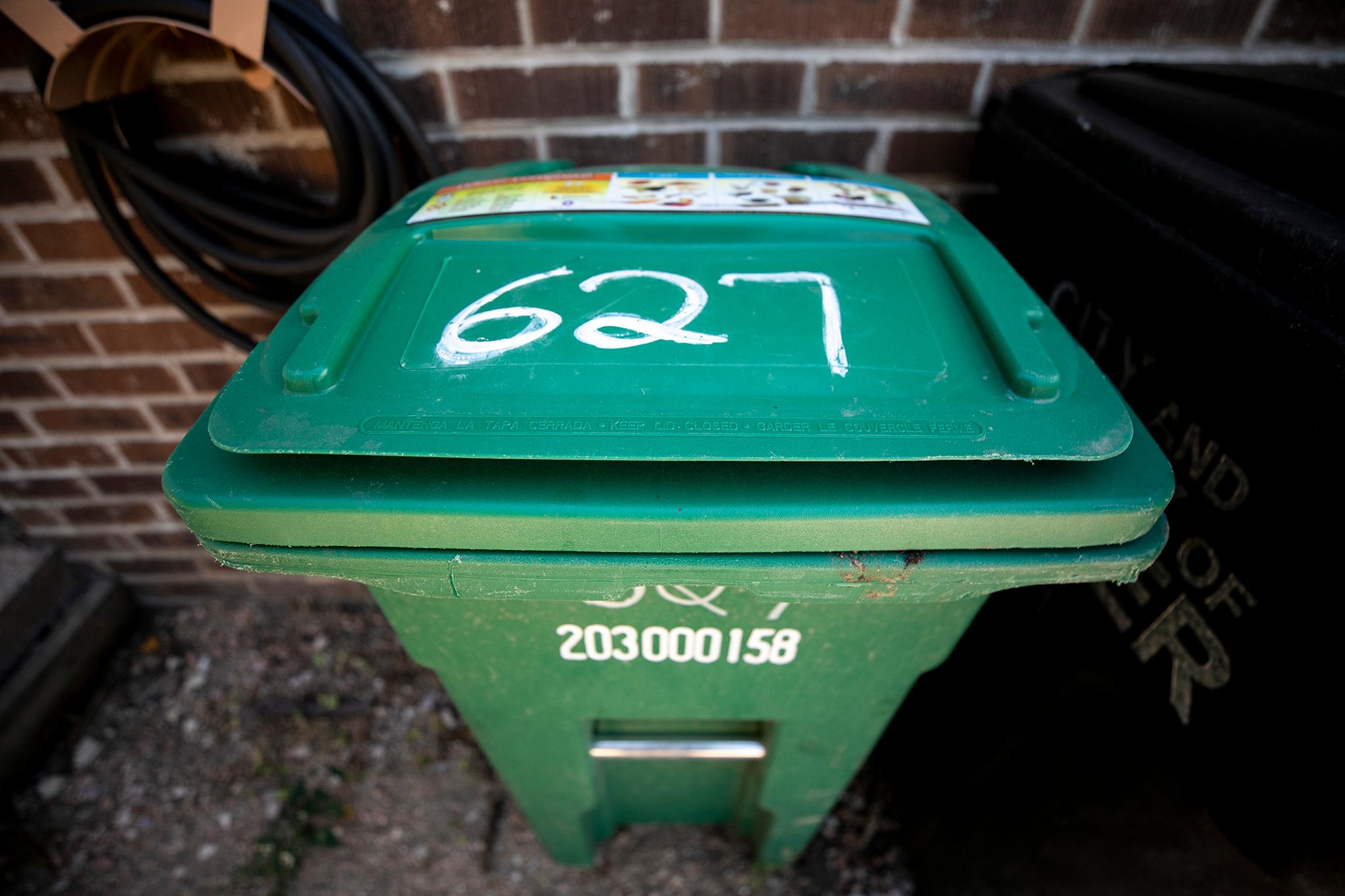First there was just Denver trash pickup. Then came recycling. And now, Denverites are also being asked to compost.
Sure, the city has offered compost pickup services in recent years, but residents needed to request the bins and pay for the service themselves. Now, the city is in the process of rolling out its new pay-as-you-throw program that charges residents for trash services while making weekly recycling pickup and compost services free (previously, the city paid for trash collection from the budget's general fund).
The program is a climate initiative meant to incentivize residents to divert more waste from trash to recycling and compost. Bigger trash bins cost more, which means that residents who can downsize their trash by recycling and composting more will pay less.
But city roll out of the new compost bins has been slow. While some neighborhoods started receiving bins in August, others won't get compost service until 2024. Residents without compost bins will get a $9 credit until they start receiving composting service (and the city does not recommend downsizing trash bins until then).
The city is currently distributing bins in waste district two (which is different from your Council district). You can find the waste collection districts and cart delivery timelines here.
For people who have gotten their green bins, how does it all work?
Before getting your bin, the city will send residents a letter telling them what to expect.
In addition to the big green bin residents put out on trash day, the city will also deliver a smaller green bin meant to keep inside. Like a kitchen trash can, that's where you can throw food scraps throughout the week before taking it out to the bigger bin. If throwing scraps straight into the smaller bin gets nasty, you can buy compost-friendly biodegradable bags for the smaller bin and take it out like a bag of trash. Here are a few options for those bags.
For people with compost bins, pickup comes weekly on their designated trash day. You can find a schedule of trash day pick ups here.

What can and can't go in the compost?
Denverites can compost all food scraps, including produce, bread, cheese, egg shells, bones and meat in their city-provided bin. You can also throw in yard waste like leaves, branches, flowers and grass, plus those compostable bags used to gather scraps in the smaller bins.
Paper products, even those marked as compostable, cannot go in the city composting bins. This also includes things like paper towels, pizza boxes, coffee filters and plates and utensils labeled as compostable. Construction materials, pet waste, glass and Styrofoam are also prohibited.
Throwing out or recycling paper products labeled as compostable might sound counterintuitive, but it comes in response to so many people throwing non-compostable paper products into their bins. In recent years, Coloradans have been so bad at composting that companies have rejected full truck loads of compost due to contamination with things like glass, which often break into small pieces and cannot be filtered out by screening machines at composting facilities. When composting batches get rejected, they head to the landfill.
Earlier this year, A1 Organics, the composting company that serves Denver, changed its rules on paper products because contamination had increased as communities grew their composting services. According to A1 Organics, another problem comes from a lack of regulation in the world of compostable products, some of which do not break down quickly or cannot be processed in a uniform way.

What happens to the compost once the city picks it up?
After the city drops waste off at one of A1 Organics' plants, the company processes it into compost, a product full of nutrients that can be added to soil. While there are different ways to compost, A1 Organics uses a process called windrow composting, which piles waste into long rows that get turned over until the waste decomposes.
A1 organics then sells the compost for farming and gardening. In addition to providing nutrients, the compost provides moisture to plants, requiring less water use.
The city also has resources for people who want to get more involved in composting. People who want to bring compost directly from their kitchen to their garden can do DIY backyard composting. There are different types, but backyard composting often involves worms that consume scraps and break them down. The city also offers a Master Composter Training Program.

Who does the composting program apply to?
The program only applies to people living in single-family homes or buildings with seven or fewer units. Bigger buildings are considered commercial buildings, which contract out their own pickup. A ballot measure passed in 2022 will require commercial buildings to provide recycling and compost services, but that roll out will look different based on the building.
The city also offers financial assistance for the new pay-as-you-throw program based on income. People can check their eligibility and apply online here, and change their trash cart size here.
Editor's note: This article has been updated to correct the cost of the trash credit from the city.














